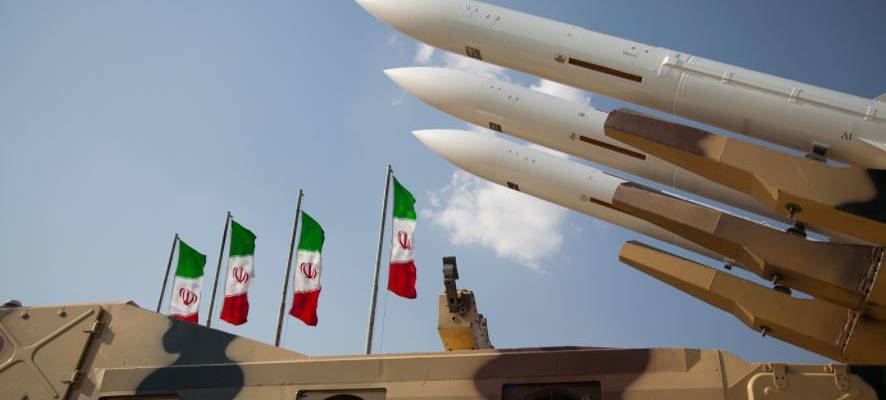On the eve of the resumption of nuclear talks in Vienna, Iran declared that its “greatest goal” is the destruction of “Zionism in the world.”
By United With Israel Staff
All eyes are on Vienna as negotiations over the Iranian nuclear deal resume on Monday. The indirect talks between the U.S. and Iran have been on hiatus since June.
Israel and the Gulf states oppose the U.S. return to the Joint Comprehensive Plan of Action, the nuclear agreement negotiated by President Barack Obama in 2015 and withdrawn from by President Donald Trump in 2018. For President Joe Biden, returning to the JCPOA is a major foreign policy goal.
Skeptical Israeli officials already fear that the Biden administration will settle for an agreement that ends the current sanctions on Iran if the Islamic regime simply ceases its uranium enrichment — which would be even worse than the original JCPOA agreement.
“Today, Iran will be arriving at negotiations in Vienna with a clear goal: To end sanctions in exchange for almost nothing. Iran won’t just keep its nuclear program; from today, they’ll be getting paid for it,” Israeli Prime Minister Naftali Bennett declared.
“Iran doesn’t hide its intentions. Just a couple of days ago, the senior command of Iran’s Armed Forces declared, and I quote, ‘We will not back off from the annihilation of Israel, not even one millimeter,.”
Indeed, Armed Services spokesman Sardar Shekarchi told the Iranian Students’ News Agency (ISNA). “The destruction of the occupying regime in Jerusalem is the greatest goal…we pursue.”
“Such a murderous regime should not be rewarded,” Bennett said. “Despite Iran’s violations and undermining of the nuclear inspections, Iran will be arriving at the negotiation table in Vienna, and there are those who think they deserve to have their sanctions removed and hundreds of billions of dollars poured right into their rotten regime. They’re wrong.
“Iran deserves no rewards, no bargain deals and no sanctions relief in return for their brutality. I call upon our allies around the world: Do not give in to Iran’s nuclear blackmail.”
Raising concerns that Tehran is insincerely stalling for time, Iranian Foreign Minister Hossein Amir Abdollahian said on Wednesday that talks would not resume where they left off in June. He also insisted that as a precondition for talks, the U.S. should unfreeze $10 billion in frozen Iran funds and lift sanctions on the Islamic Republic.
All the signatories to the original JCPOA agreement will be represented in Vienna. The nuclear accord was signed by Iran along with with the five permanent members of the UN Security Council — the U.S., Russia, China, France and Britain — as well as the European Union and Germany.
The U.S.-Iranian talks will be held indirectly with European diplomats passing messages between the two sides.
Talks broke off in June ahead of Iran’s presidential election, which was won by hard-line Ebrahim Raisi. Officials in Tehran said Raisi and his cabinet needed time to transition into power, but during the interim, Iran managed to expand its stockpile of enriched uranium, reach higher levels of uranium purity and improve the number and quality of their centrifuges.
The Iranians have also refused to allow inspectors from the International Atomic Agency to reinstall surveillance cameras in Karaj, a centrifuge facility that was sabotaged in June.
Israeli security officials are already assessing how Tehran and its regional proxies may react should the Vienna talks collapse.
In a joint op-ed published in Britain’s Daily Telegraph, Israeli Foreign Minister Yair Lapid and his British counterpart, Liz Truss, said the two countries would “work night and day to prevent the Iranian regime from ever becoming a nuclear power.”
“Many fear the skies are darkening worldwide due to the pandemic, the threat of terrorism and hostile actors seeking the upper hand,” they wrote. “But we believe that with the right approach, freedom and democracy will prevail over malign forces.”
Lapid is currently in Europe to try and make sure sanctions, such as on Iran’s banking and oil sectors, remain in place.




